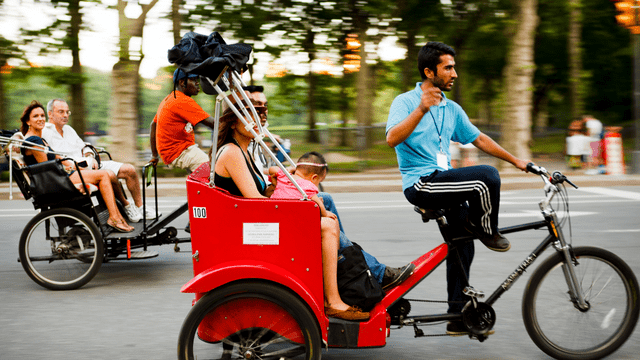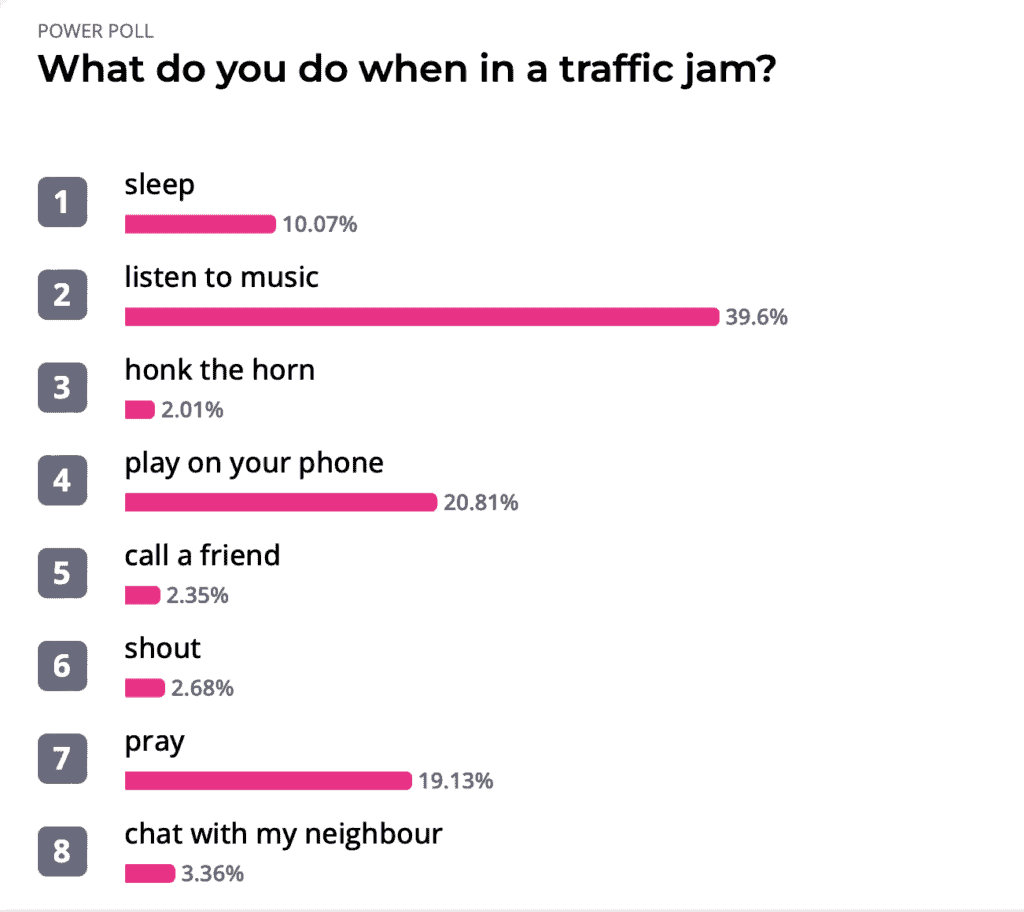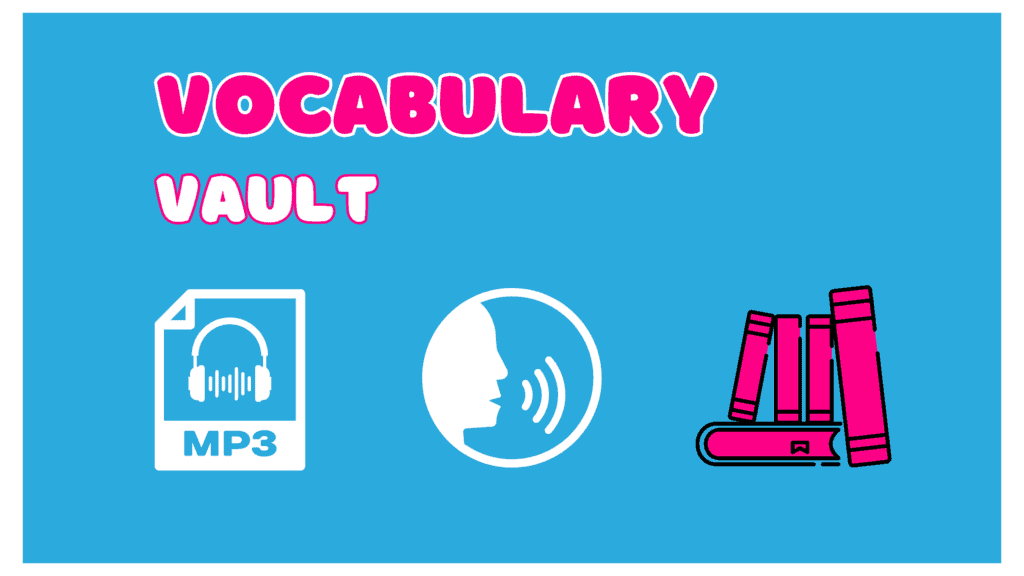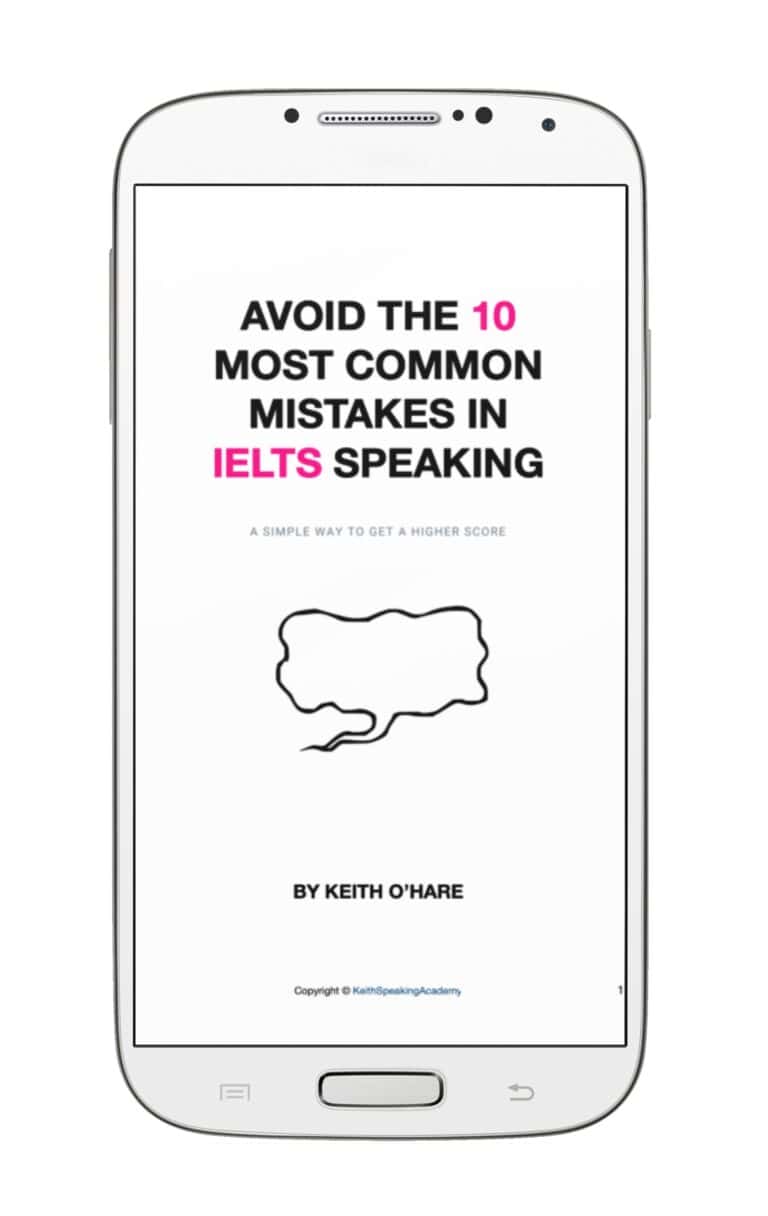IELTS Speaking Lesson about Transportation
👇 Take this lesson with you! 👇
In this lesson we will look at different types of transportation, both public and private, as well as the problems transportation systems have.
Finally, we will also consider the solutions to such problems.
Throughout the lesson we will focus on vocabulary, especially collocations and idioms, that you can use to talk about this topic confidently.
Table of Contents
IELTS vocabulary: Transportation
In the UK we tend to use ‘transport’ as a noun, whereas in the US they tend to use ‘transportation’ as a noun. For example,
Public transport (UK)
Public transportation (US)
A form of transport (UK)
A means of transportation (US)
Every city has its own transportation system, including both private and public vehicles /viː ɪkəlz /
- Public transportation
Bus, coach, train, plane, ferry, cruise ship, taxi, cab, bicycles for rent, rickshaw, tuk tuk, tram, subway, tube (London)
- Private transportation
Car, motorbike, bicycle, jet, yacht, boat, van, scooter

IELTS Speaking topic: Problems with transportation systems
Watch the video and answer the question below
What are the 4 main problems with Transportation Systems?
Tape script: Collocations in bold
Hide / Show
- Overcrowding
There is overcrowding in peak hours, or the rush hour, due to insufficient number of buses or trains.
People are packed like sardines, squeezed into confined spaces, buses are full to the brim with passengers.
Emissions of carbon dioxide and other gases, the exhaust fumes from cars and buses can be overbearing, not to mention planes.
They make up around 10% of all transportation CO2 emissions.
There can be excessive noise pollution.
- Traffic jams
You can frequently find a build up of traffic, or bottlenecks sometimes caused by bad city planning.
The cause maybe an antiquated (=old) city road system.
The volume of traffic is too great.
Private car ownership has grown.
- Delays
Trains and planes can be delayed for hours on end, or even cancelled.
This usually leads to boredom and frustration.
This problem is exacerbated by the sudden increase in demand following years of being locked up during the pandemic.
There is insufficient staff to cater for the increase in demand.
IELTS Speaking topic: Solutions to transportation problems
Before you watch the video below, think about the solutions to the transportation problems or overcrowding, pollution, traffic jams and delays .
Now watch the video and and see which ideas are the same as yours.
Also make a note of any interesting collocations.
Tape script: Collocations in bold
Hide / Show
So, we have seen the problems with transportation, including, traffic jams, delays, pollution and overcrowding, but what about the solutions?
Well, as far as, traffic jams, delays and overcrowding are concerned, we really need to improve the transportation infrastructure.
We need better urban planning, and we really have to update the roads, highways and flyovers.
We need more roads, and wider ones, as well as bus lanes, but of course, we need to be careful we don’t encroach on green spaces within the city.
Infrastructure is one thing, but we also need better vehicles, especially if we are going to combat the problem of pollution and climate change.
So many countries are aiming to be carbon neutral in the near future, so new sustainable vehicles are going to be necessary.
Many cities are developing and investing in electric, hybrid, and lower emission buses, for the their bus systems.
In countries like Germany they are piloting (=to test) zero emission trains which is being extremely successful.
Also across Europe, many ferry companies are investing in hydrogen-powered ferries that will be much more sustainable in the future.
A final point worth mentioning is the idea of Smart cities.
This is the integration of technology to improve the city infrastructure and city efficiency.
For example, you can monitor traffic jams and get the information to the drivers before they arrive there.
This is done with a system of sensors attached to lampposts across the city, collecting information, gathering the data and passing it on to the drivers.
Similarly for parking, similar systems can be set up.
So all in all, I think a total overhaul (=a complete change) of the urban infrastructure is needed and new, more sustainable vehicles will be a requirement in the future.
Of course, easier said than done!
IELTS topic: Traffic jams - what do you do when in a traffic jam?
Some people shout and honk their horns, others just relax and listen to music.
These are the most popular activities that you students said they do when in a traffic jam.

TIPS: How to improve your english
Take an integrated approach
Practice all 4 skills
Reading, listening, speaking and writing
All of these will improve
✓ your grammar
✓ your vocabulary
✓ your ‘sense of the language’
- Practice each one widely
Novels, newspapers, blogs, poetry, recipes…
Podcasts, news, talk shows, films, comedy, politics
Chat on different topics
Diary, ideas, reports, emails, letters, blog, novel, essays
Idioms about transportation
- Packed like sardines = crowded very close together
We are packed like sardines on the bus in the morning during rush hour.
- To miss the bus = not to catch the bus (you arrived too late). This is not an idiom!
- To miss the boat = to miss an opportunity
I have missed the boat with that promotion, they have already chosen someone.
- That ship has sailed – that opportunity has already gone
Stop thinking about the promotion, that ship has sailed, focus on something else.
- To hit the road = to start a journey
We need to get up early tomorrow, so we can hit the road before the rush hour.
- To drive someone up the wall = to make them angry
Waiting in traffic, drives me up the wall
- To drive someone round the bend = to make them angry
Getting stuck in a traffic jam, drives me round the bend!
- Bumper to bumper = almost no space between cars.
The traffic was bumper to bumper all the way home.
Pronunciation Files For Vocabulary From My Best Live Lessons
Use Words EASILY in English Conversations!
More Free Lessons
If you liked this lesson, leave a comment below!
There are more lessons you can follow in the links below too.
CITIES in IELTS Speaking. Learn how to introduce your city, as well as talk about advantages and disadvantages of living in cities.
MONEY in IELTS Speaking Learn how to talk about earning, saving and spending money.
TECHNOLOGY in IELTS Speaking How to talk about technology, the internet and artificial intelligence.
COUNTRYSIDE in IELTS Speaking. Learn vocabulary and collocations about the countryside.



It is very useful sir, thank youuu
You are welcome!
Dear Keith sir- these contents are really helpful. TNX
Great, thanks for letting me know!
Keith sir, it’s worth to me. Keep it up, really it’s fantastic.
So pleased you enjoyed the lesson!